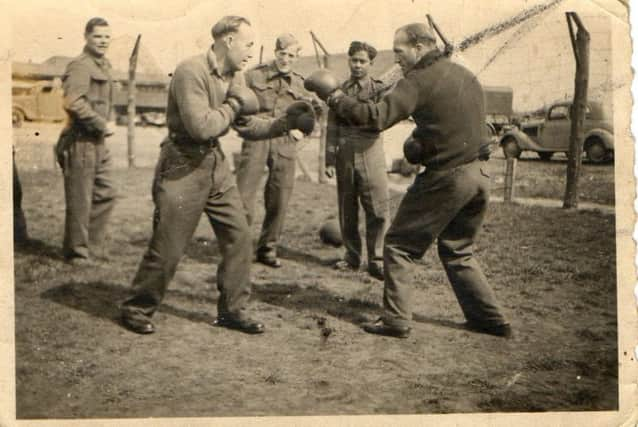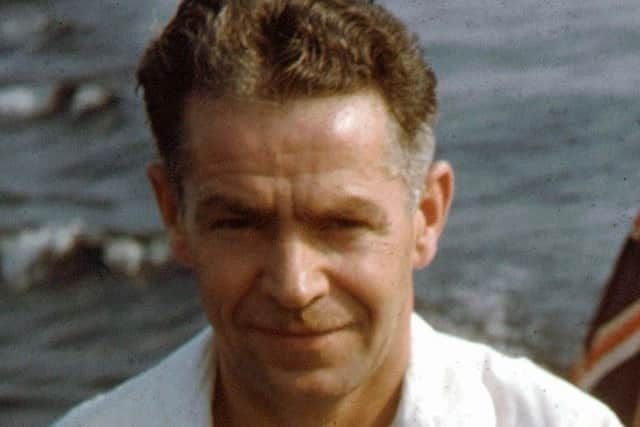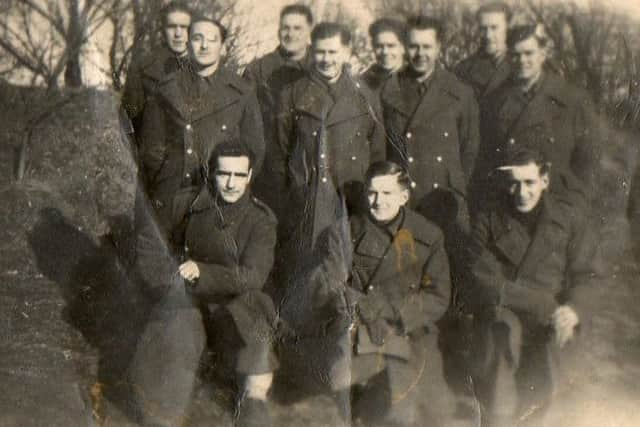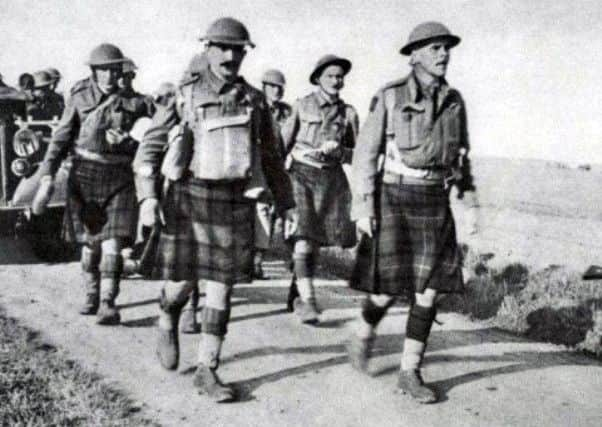Denny dad’s diary sheds light on the Scots who could not escape Dunkirk


The name conjures up bitter memories and fractious disputes, because while hundreds of thousands of men were evacuated from French beaches in 1940 it’s a plain fact that almost all of the 51st Highland Division was abandoned and left to its fate.
Whether that was a strategic military necessity or not remains a source of deep division, even after all this time.
Advertisement
Hide AdAdvertisement
Hide AdBut for thousands of Scottish soldiers it meant the end of the fighting war and the beginning of a seeming eternity of misery in Nazi prisoner of war camps.


The capitulation at St Valery is particularly important to Ian because one of those men was his dad, Thomas Barbour McNeish.
Born in Lesmahagow the family were miners, and moved to Denny - and the mining work there - when the local pit closed.
Thomas became a shoemaker, and ultimately rose to managerial rank in the Co-op organisation before his untimely death during his 50’s.
Advertisement
Hide AdAdvertisement
Hide AdBut his wartime experience, noted down in straightforward but often chilling entries in his diary, is the story Ian feels really needs to be shared - perhaps to youngsters interested in the war.


Rations in Hitler’s camps were completely inadequate to keep people healthy - even in camps for British and French prisoners, which were supposed to bear some resemblance to civilised norms.
Russian prisoners were routinely starved to death, in their tens of thousands, and of course Jews (and others) were murdered en masse.
Diary entries record “a sixth of a loaf” as a standard ration for the British troops, and Ian reckons many more men would have died were it not for the sporadic relief of Red Cross parcels.
Advertisement
Hide AdAdvertisement
Hide AdOne English prisoner with a vaguely foreign-sounding name was asked during interrogation if he was Jewish, to which the answer was no, he was not.


Had he been he would have been either executed on the spot or deported to a death camp, such as Auschwitz.
“Once my father and a friend found frozen turnips in a field, and began to eat them raw - it was all they could do”, says Ian.
“A German guard caught them - a big man with red hair - and beat my dad savagely with his rifle butt. He carried the scars, especially one on his forehead, till the end of his life”.
There is a sequel to that story.
Advertisement
Hide AdAdvertisement
Hide AdAs the Germans began to lose the war they sent their prisoners off on a hellish winter march to a new camp they hoped would be far enough from the advancing allies.
The men were barely fed and not properly dressed for winter, and many died on the march or suffered dysentery and other serious illnesses.
“Dad survived it”, says Ian, “and he remembers they heard shooting in the distance - they knew the allies were closing in, but didn’t know whether it was the Russians or Americans.”
In fact it was the US Army, and by the time they relieved the camp most of the guards had vanished.
Advertisement
Hide AdAdvertisement
Hide AdOne US officer, speaking to Thomas, asked him if there was anything he would like - and somehow Thomas persuaded him to give him his army-issue Colt .45 revolver.
Thomas intended to find the big German with the red hair and use the gun to kill him ... but unfortunately, as he saw it, the guard was nowhere to be found.
Intriguingly, the story suggests the American officer understood - and was quite relaxed - about what Thomas had intended.
Ian adds: “However dad didn’t speak to the officer again and that gun never went back to the US Army”.
Advertisement
Hide AdAdvertisement
Hide AdDuring his lifetime his dad kept it, along with ammo, with the firm intention of shooting dead anybody who ever tried to imprison him again.
Meanwhile Ian has one fascinating anecdote that proves there were more than a few Falkirk men in that hellish German POW camp.
There was a prison camp league, in which the various teams took on the name of teams at home, on both sides of the border (eg Millwall FC) - and Falkirk won it.
Were they all Falkirk men, or inspired by someone who came from Falkirk?
Advertisement
Hide AdAdvertisement
Hide AdThe fact that Thomas (from Denny) was in the team suggests it was truly “local” in origin.
Their names are inscribed for posterity in match reports - for example C David, (surname) Shearn, Thorlow, Tearn, J and also T Drummond, Mills, Masters, and of course Ian’s dad.
Meanwhile although the original 51st Highland Division had been taken out of the war a second was formed, and Viscount Montgomery of Alamein later said it was the only British formation which followed him all the way from the Western desert to the final victory in the heart of Germany.
Preparations are already underway for a series of major war commemorations next year, and the 80th anniversary of the “miracle of Dunkirk” is certain to be marked in style.
Advertisement
Hide AdAdvertisement
Hide AdBut Ian, and others whose dads served in the Division that could not get away, will be hoping those men’s sacrificial example will receive the solemn acknowledgement it is due.
Their sacrifice, and the pitiless evil of the depraved regime that most of them managed to survive, is part of a history Ian and many others strongly feel should never be forgotten.